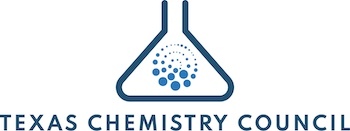Complete Story
03/06/2025
Judge Rejects US Government's Efforts to Dismiss PFAS Cases
BNA Environment & Energy Report | Pat Rizzuto | Feb. 28, 2025
Judge Rejects US Government's Efforts to Dismiss PFAS Cases
The federal government lost on Thursday its bids to have a court universally dismiss tort claims involving PFAS-enabled fire fighting foams and bar lawsuits aimed at compelling changes to its PFAS cleanups.
But the US District Court for the District of South Carolina allowed the government to dismiss some tort claims against it due to PFAS released from Cannon Air Force Base in New Mexico, which was the site chosen for the bellwether case.
District Judge Richard M. Gergel issued two orders on Thursday following oral arguments held earlier this month. The Department of Justice, which represented the federal government, had asked the court to dismiss more than two dozen tort claims against it; bar lawsuits about ongoing cleanups; and terminate Cannon-related tort and Superfund litigation.
Gergel’s orders apply to at least 30 cases in the national litigation he oversees.
Those 30 cases are among thousands that individuals, businesses, water utilities, states, cities, and other parties have filed against companies that produced per- and polyfluoroalkyl substances (PFAS), manufacturers of a specialized fire fighting foam that contains those chemicals, and the Department of Defense.
The lawsuits the government sought to dismiss generally allege that the US military’s use and handling of PFAS-based fire suppressants called aqueous film-forming foams (AFFF) at specific Air Force bases and other installations resulted in nearby water and land contamination. Some PFAS, dubbed “forever chemicals,” persist for decades and are linked to a variety of health problems, including cancer and weakened immune systems.
Global Dismissals
The government wanted the court to dismiss two general types of lawsuits.
First the government rejected claims brought under the Federal Tort Claims Act, which determines when federal agencies can be sued. Under that law, torts are barred when no federal policies or regulations covered an agency action taken as that agency’s right to exercise its discretion, DOJ argued in the case, referring to the “Discretionary Function Exception.”
The government also sought dismissal of state and other cases aiming to broaden, shorten, or otherwise affect PFAS cleanups underway at military bases under the Comprehensive Environmental Response, Compensation, and Liability Act (CERCLA), or Superfund law. The statute bars federal agencies from being sued while CERCLA cleanups are ongoing, the DOJ said.
Too many material facts at the various sites are in dispute to grant the government’s motions to globally dismiss federal tort claims or litigation over the government’s efforts to cleanup PFAS, Gergel said in the order dealing with the two global government motions.
But, the government may be able to seek dismissals in the future, he said. The order describes steps litigants must take to proceed with discovery at sites beyond Cannon.
Cannon’s Tort Liability
Gergel said in his second order, dealing with the bellwether case, that the federal government can’t be sued for failing to warn communities about PFAS-based fire fighting foam released by military bases, and states can’t sue the Pentagon while its PFAS cleanups are underway.
Four dairies near Cannon claimed the base is liable for failing to warn them about PFAS-based fire fighting foam reaching groundwater that served as both the families’ and farms’ source of water.
Gergel’s order granted the government’s motion to dismiss those claims, saying they are barred by the Discretionary Function Exception.
But the dairies can proceed with claims that their businesses and homes were damaged, even ruined, by careless, negligent actions that violated a mandatory base policy, he said.
Over time the base developed mandatory instructions for handling the AFFF in aircraft hangers. The base’s frequent violations of those instructions allow those claims to proceed, Gergel said.
Cannon experienced at least forty-five accidental discharges of AFFF since the 1990s leading to the release of more than 4,500 gallons of AFFF, he said. The accidental discharges were due to system malfunctions and operational errors.
“These instances of human error do not involve an element of judgment or choice,” Gergel said. “Because no policy considerations would be implicated in such instances, the government is not shielded by the Discretionary Function Exception for negligent AFFF releases.”
Superfund Claims
New Mexico wanted to force Cannon to comply with permits the state had issued and take other actions required by state law.
Gergel sided with the DOJ and dismissed New Mexico’s requested relief, saying the Superfund law bars challenges to federal cleanups while they’re ongoing. But the state might be able to bring its concerns back to the court eventually, he said.
New Mexico and other states have administrative means to challenge federal agencies’ cleanups while they’re going on, and they can challenge the sufficiency of the remediation after it’s complete, he said during the Feb. 7 hearing.
It’s not practical for the court to oversee the ongoing $100 million removal action at Cannon and ensure compliance with New Mexico’s detailed permit compliance demands, Gergel wrote.
‘Takings’ Case
Although Gergel dismissed failure to warn claims asserted by the four dairies, his order describes the “devastating” consequences the base’s AFFF releases caused for the Highland Dairy, which abuts the Air Force base and lies directly in the flow of the underground aquifer that’s the area’s sole source of water.
Highland’s owner, Art Schaap, and other nearby dairies and residents are trying to recoup some of their losses in a separate case that asserts Cannon’s contamination violates the US Constitution’s Fifth Amendment, which said the government can only take private property for public use if it provides just compensation.
The dairies and residents objected to the government’s effort to also dismiss that case through a memorandum filed Wednesday.
The AFFF case is In Re Aqueous Film-Forming Foams Products Liability Litigation MDL 2873, D.S.C., No. 18-02873, Orders Issued, 2/27/25.

